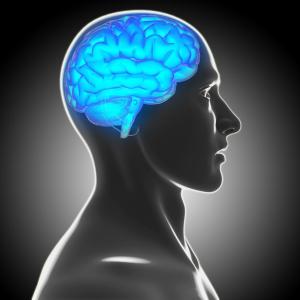Individuals with bipolar mania appear to respond well to magnetic seizure therapy (MST) while sustaining fewer effects on language function, with the response rate not significantly different from that seen with electroconvulsive therapy (ECT), as shown in a pilot study.
In the intention-to-treat analysis, response was achieved in 86.4 percent (95 percent confidence interval [CI], 72.1–100) of patients who underwent MST and in 95.0 percent (95 percent CI, 85.4–100) of those who received ECT (χ2, 0.18, 95 percent CI, −0.13 to 0.31; p=0.67). [JAMA Netw Open 2024;7:e247919]
There were no significant between-group differences in the reduction in the total Young Manic Rating Scale (YMRS) scores (mean, 28.73 vs 29.75, respectively; p=0.76) and the YMRS reduction rate (mean, 0.78 vs 0.83, respectively; p=0.41). MST induced significant lessening in YMRS items such as elevated mood, increased motor activity or energy, irritability, and disruptive or aggressive behaviours.
“No global cognitive impairments were observed in either group after treatment in this study,” according to the investigators. “Two significant cognitive effects were noted: language function was well preserved in patients undergoing MST [p=0.19], though it was worsened in patients undergoing ECT [p=0.045], and the attention of patients in both groups showed improvement after treatment.”
The ECT group experienced significantly longer seizure duration compared with the MST group (mean, 37.32 vs 10.96 s; p<0.001), with seizure duration negatively correlated with changes in language scores in the MST group (p=0.009).
“The different effects on cognition between [the two groups] may be associated with the different diffusion patterns between magnetic and electrical stimulation. The scalp and skull shunt the electrical current of ECT, leading to a nonfocal and widespread electrical charge to the brain,” the investigators explained. [Neuropsychopharmacology 2020;45:276-282; J Neural Eng 2011;8:016007]
Meanwhile, “MST generates a focal electric field that is more confined to the superficial cortex. The involvement of deep brain structures (ie, the hippocampus) plays a key role in ECT efficacy and cognitive side effects,” they added. [Biol Psychiatry 2022;92:193-203; Brain Stimul 2017;10:637-644]
Well tolerated
The intention-to-treat population included 42 adult patients with severe manic symptoms for whom ECT was indicated. These patients were randomly assigned to receive either MST (n=22, mean age 34.8 years, 68.2 percent male) or ECT (n=20, mean age 31.6 years, 60.0 percent male). Each patient completed two or three sessions of their assigned treatment per week for a total of eight to 10 sessions. MST was delivered at 100 percent device output with a frequency of 75 Hz over the vertex.
“Overall, both [treatments] were effective and tolerated by our patients with bipolar mania. Eight treatment sessions were completed by 80.0 percent of patients in the MST group and 78.3 percent of patients in the ECT group, with no serious adverse effects in either group,” the investigators said.
Five patients, including two in the MST group and three in the ECT group, had transient general anaesthesia reactions such as headache and nausea, which were relieved immediately after treatment. Treatment discontinuation occurred in three patients in the MST group due to a headache (n=1), a worn-out coil (n=1), and stigma (n=1), and in three patients in the ECT group due to financial difficulties in hospitalization (n=2) and stigma (n=1).
“These preliminary findings suggest that MST may be an alternative treatment for bipolar mania,” the investigators said.
“The good antimanic effect of MST did not differ significantly from ECT,” considering that the former “is typically used to treat treatment-resistant depression, and few attempts have been made to treat bipolar depression,” they continued. “Thus, MST may be effective in patients with various states of bipolar depression and mania, though more research is necessary to elucidate these effects.”

